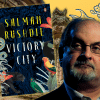In search of American freedoms

Increasingly over the years, American literary fiction has centered upon rage—a rage brought on by family, one's own identity or, through the very cruelty of economic catastrophe. The most popular example of this is perhaps Jonathan Franzen's Freedom (Farrar, Straus and Giroux, 2010), where rage is wheeled in to chronicle the fractures of 21st century Americana. Yet as near-perfect as Freedom is, it is not privy to a myriad of experiences and expressions of American rage. A decade and more later, Franzen's rage is a period piece, a little strange, and clearly white.
Reading Jonathan Escoffery's debut If I Survive You, which was shortlisted for the Booker Prize this year, I was moved by its thoroughly justifiable rage. The book takes a malleable form: characters shift between second, first, and third person, between Jamaican patois and MFA English, the book's form itself can be termed a collection of stories or a novel proper. Even the characters' economic status changes from running promising businesses to outright homelessness.
If I Survive You revolves around Trelawny and his family as they try to make a living in America. We find the young Trelawny dealing with the realities of being a minority, and his shame at the circumstances he inherits. He actively shuns any association with being Black and Jamaican, to avoid being stereotyped. In fourth grade World Geography, he chooses Mongolia for a project, forcing his mom to cook Mongolian food to bring in class. "Me could've brought in leftovers," his mother says, "if only you chose home."
Yet, when he speaks of home, such as when he asks his mother if they are Black, she never answers directly, saying "You're a little of this and a little of that." In High School, he finds he has to play up the role of race to be believable. "You might talk and dress black, but you still write White", Trelawny says. Perhaps, this is what prompts Escoffery to write in Jamaican patois of him moving back from a Midwestern college to Miami to be with his father, a seemingly uneventful chapter that only has that stylistic choice as significance.
Trelawny's older brother, Delano, their father's favorite, is the more charismatic of the two, a musician and certified "arborist," doing odd jobs until the recession dries up his work prospects. Though he is less thoughtful of his place in society than his younger brother, he is also less pitiful, a quality that often makes it hard for the reader to appreciate the sentimental Trelawny. Indeed, when we see Trelawny next, working at a senior housing complex, the harsh conditions of homelessness have fundamentally changed him. The introspection is gone, replaced with a cynical desperation to survive.
Escoffery's book is a sincere and sensitive account of the degradation that people of color in America must go through—especially the constant refusal of acceptance they must face. Trelawny's girlfriend, speaking of her family, says, "It's not that they hate you…It's just that every time I visit, she reminds, 'If you have his babies they'll never have blue eyes.'"
But when Trelawny asks if anyone ever had blue eyes in their family, she shrugs, "It's possible," she says.
The rage that this elicits, then, is not only justifiable but also tiresome and never-ending for those who go through them all their lives. The young Trelawny yearns to be just "American" but the real beauty of If I Survive You is that he learns too late that American freedoms are not available to all.
Shahriar Shaams has written for Dhaka Tribune, The Business Standard and The Daily Star. He is nonfiction editor at Clinch, a martial-arts themed literary journal. Find him on X @shahriarshaams.

 For all latest news, follow The Daily Star's Google News channel.
For all latest news, follow The Daily Star's Google News channel. 







Comments